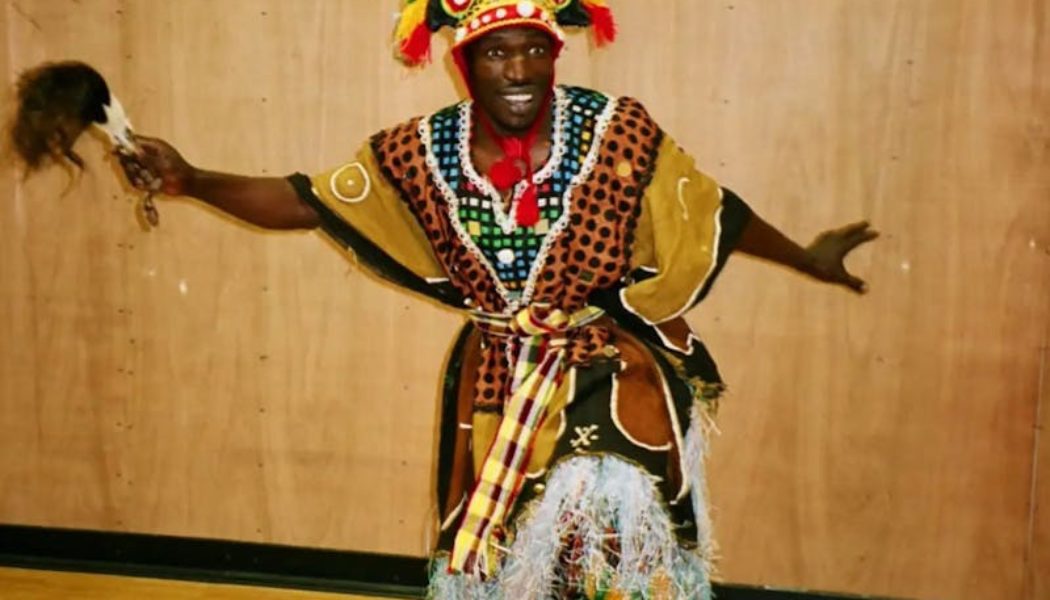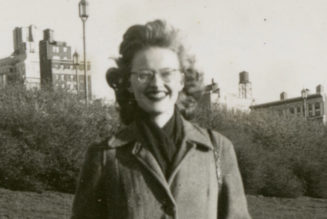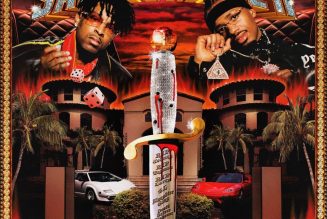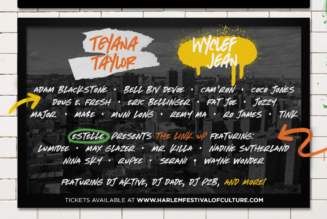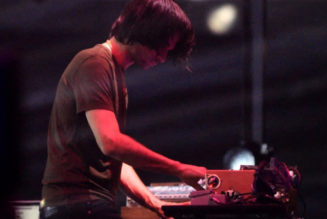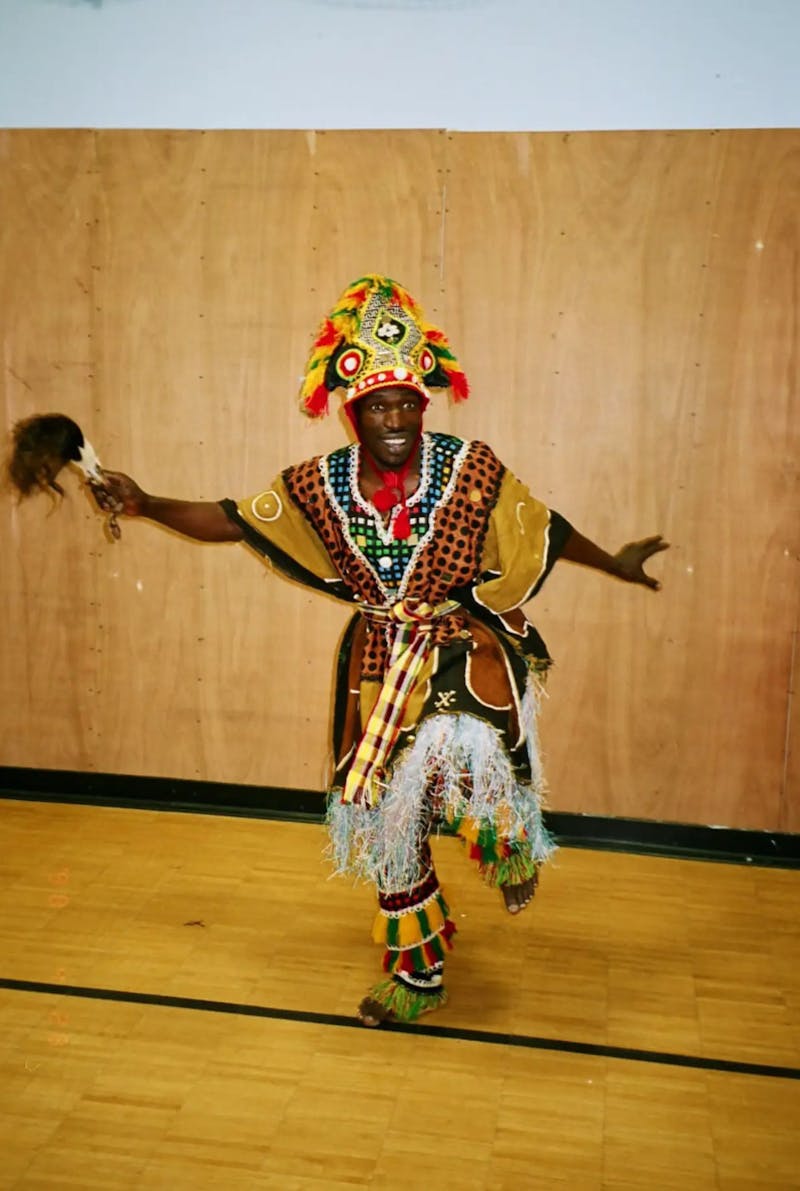
Walking into Wilson Hall, I was a bit tentative about the new environment. This would be my first official dance class in over a year — I was excited but nervous for this experience.
As the other attendees and I settled in, the sounds of our voices and shuffling feet were soon underscored by a different kind of noise: the steady, rhythmic clapping of hands. The instructor of the class had gotten up from the circle of drummers and was making his way to the dance floor, drawing us in with the beat. As everyone slowly joined in, the volume increased, as did the energy in the room. Soon, any nervousness I had felt was drowned out by the sound of everyone clapping together in time.
Then, the drums joined us. The deep, rich bums of the djembes and doundouns filled the auditorium, resonating through the whole space, the syncopated rhythms overlapping with each other and the steady “one-two-one-two” of the dancers’ clapping hands creating a cacophony of sound that transported us out of the small town of Middlebury, and into the heart of West Africa.
The West African Dance and Drum Class is a free, walk-in workshop sponsored by the college Dance Department. On Monday evenings between 5 and 6:30 p.m., college students, faculty and community members are welcome to drop in to one week of the class, or come each week for the class’s duration through May 6. I attended on Feb. 26.
The class is led by Soriba “Simbo” Camara, a master teacher of traditional West African dance. Originally from Guinea, a country located on the northwest coast of Africa, Camara has an extensive background in traditional dance training beginning at the age of five. Throughout his career, Camara has been a soloist, principal dancer and choreographer at several ballet schools in Guinea. He is now based in Bristol, Vt.
Camara shares his knowledge of traditional West African music and dance by bringing his classes to the Vermont local community. This lifelong passion shines through in his instruction, as Camara enthusiastically supports and cheers on the dancers as he demonstrates each step and drums out the rhythms for attendees to follow.
“African dance and drumming is about exercise, the culture … [and the] happiness that we bring together that brings people together,” Camara said. “That is where the West African culture comes from.”
This essence of community and togetherness that Camara referred to exists not just between the dancers themselves on the floor, but between the dancers and the music that moves them.
The relationship between the dance and the music is integral to learning dances from West Africa, as the tradition features a call-and-response pattern. Two of these dances we learned, the Kuku and the Soli, not only taught students about finding their rhythm and how the music moves them but also about traditional Guinean culture.
The Kuku is a popular rhythm from the Guinean forests, the southeast region of the country that neighbors the Ivory Coast. Meanwhile, the Soli comes from the north of Guinea, the desert next to Senegal and Mali. The dances are two different cultural experiences, based in separate parts of the country, yet Camara brings them together in the same class to give his students an impression of Guinea’s range of cultural expression.
The dance moves are strong and dynamic, inviting one’s feet to constantly move underneath them, stomping out the steady rhythm of the drums. Dancers go from raising their arms up to the sky as if they were reaching for the clouds, to bending down low, pliéing as they scoop their arms up from the floor.
Clapping, high knees, swinging arms and fast feet make for a fast-paced and high-energy workout. But don’t be alarmed by the speed with which the dancers move – as Camara put it, the class is all about the practice.
“Take your time. You’re going to watch the people and what they’re doing — you’re going to follow them,” he said.
For anyone interested in exploring African culture, dancing, exercise or trying something completely new, the West African dance and drum class is a supportive, fun environment that radiates positivity through the beat of traditional songs and dances from Guinea.
